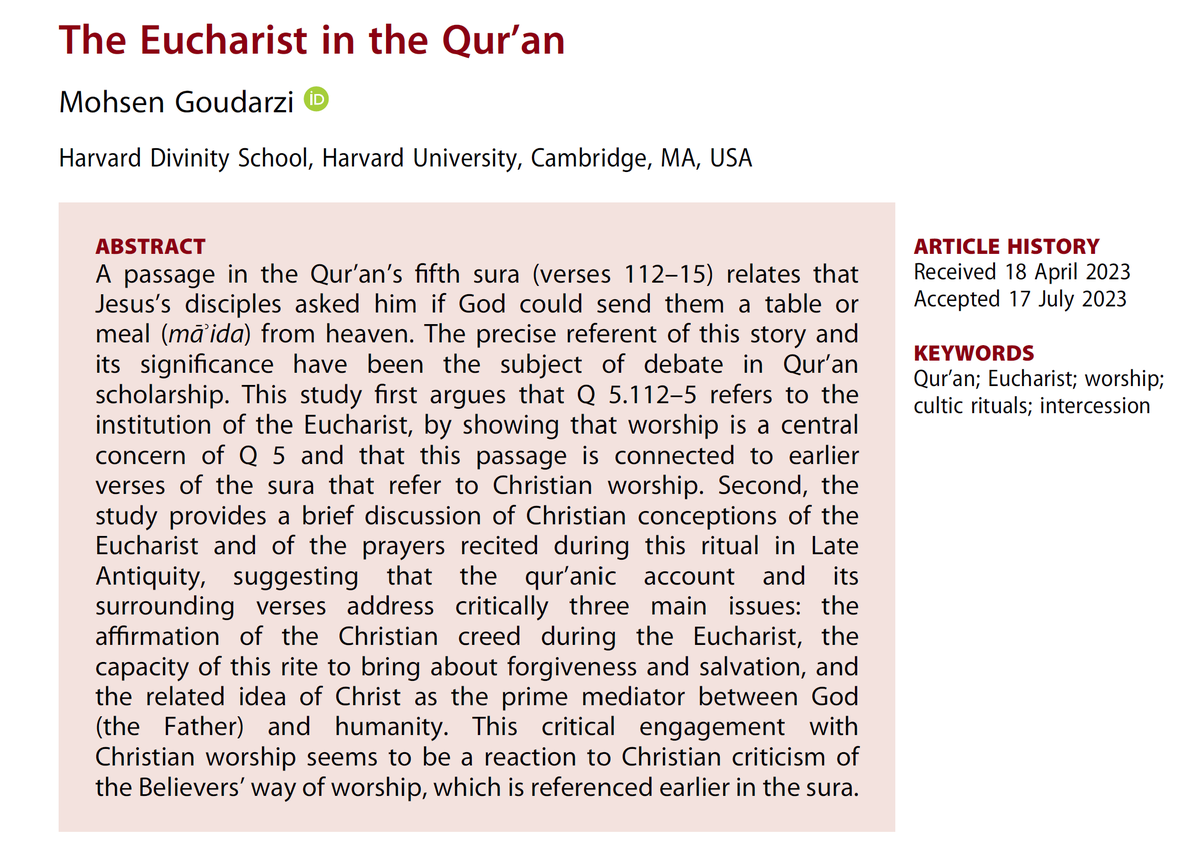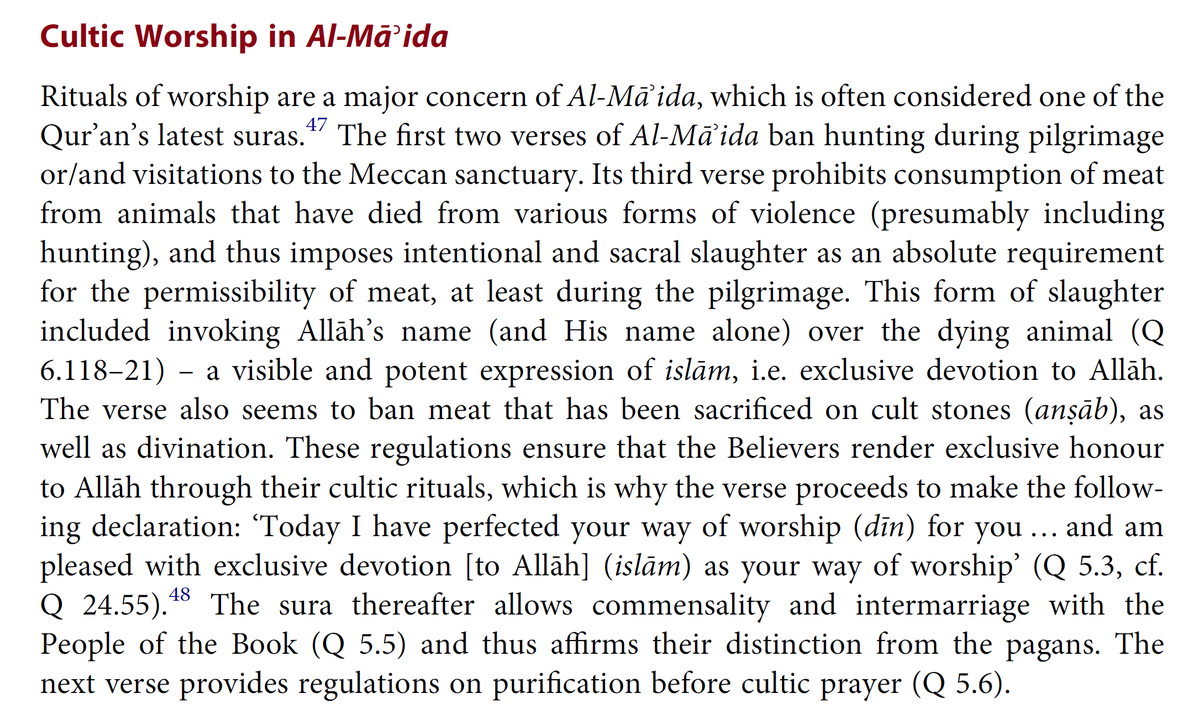Q 5:112-5 relates the story of a table/meal which the apostles of Jesus asked to receive from heaven.
I think the story recounts the Eucharist's institution & is part of a 2-way polemic between People of the Book & Believers over worship.
1/12
doi.org/10.1080/095964…

I think the story recounts the Eucharist's institution & is part of a 2-way polemic between People of the Book & Believers over worship.
1/12
doi.org/10.1080/095964…

Worship & its rituals are a major theme of Qur'an's 5th surah. Its beginning prohibits hunting during worship by the Sanctuary (vv. 1-4) & requires purification before cultic prayer (ṣalāt, v. 6). Similar subjects are further treated later in the surah as well (vv. 87-103).
2/12
2/12

The surah indicates that some People of the Book mocked the worship (dīn) of the Believers, including the latter’s ṣalāt (vv. 57–8), a cultic ritual associated with the Meccan sanctuary (Q 14:37).
3/12
3/12
Perhaps what they criticized was in particular the corporate ṣalāt of Friday (compare Q 5:58 with 62:9), which is described in some early Arabic sources as a festive occasion (ʿīd) and a time for the community to worship God as well as eat and drink.
4/12
4/12

If some Jews/Christians criticized the Believers' worship, it was probably because they rejected the Meccan sanctuary. Ergo, they had not supported the venture to take control of the sanctuary, just like the Israelites who did not fight to enter the Holy Land (vv. 20-6).
5/12


5/12


In response to criticism of the Believers' worship, the surah criticizes the People of the Book's worship. As for the Jews, some of them had been severely punished for violating the sanctity of Sabbath (v. 60, see Q 7:163), while others had worshiped false gods.
6/12
6/12
As for Christians, some commit excess in their dīn, i.e., worship (v. 77). In particular, they profess Christ to be God and worship him, even though Christ asked the Israelites only to "worship God, my Lord and your Lord" (v. 72).
7/12
7/12

When the surah criticizes "those who said God is Christ" (without naming them explicitly as Christians!), it may be addressing professions of creed during liturgy rather than theological discourse. And a most important occasion for making such professions was the Eucharist.
8/12
8/12

The story of the māʾidah seems to revisit the issue of Christian worship addressed in vv. 72-7 by recounting a qur'anic version of the institution of the Eucharist, the central rite of worship in Christianity--and a ʿīd roughly equivalent to the Friday ṣalāt (& Sabbath).
9/12
9/12

The story confirms the Eucharist's divine institution but suggests that it can be efficacious only when coupled with monotheistic recognition. Verses that precede & follow seem to contest the idea that Christ is the prime mediator between humanity and God (the Father).
10/12


10/12


While the surah insists on strict monotheism, it still seems to depict Jesus as gently pointing out that God can not only punish but also forgive transgressors (v. 118). Moreover, if some Christians mocked the ṣalāt, the surah does not berate or reject the Eucharist.
11/12
11/12

Finally, the surah clearly distinguishes Jews and Christians from pagans (by allowing commensality & intermarriage with Jews & Christians), praises some Christians for being sympathetic to the Believers, and confirms that Jews and Christians can be saved in principle.
12/12
12/12

• • •
Missing some Tweet in this thread? You can try to
force a refresh






















